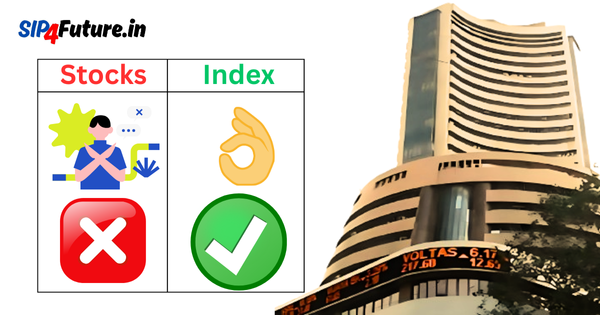India’s two-wheeler giant, Hero MotoCorp, is poised for a stellar performance in 2025, with its stock trading at ₹4067.20 on the NSE as of May 15, 2025. The company’s robust order book, innovative product launches, and optimistic festive season outlook make it a standout in the automotive sector. This article delves into the factors driving Hero MotoCorp stock, its sentiment, and the broader market dynamics shaping its trajectory.
How Is Hero MotoCorp Driving Growth in 2025?
Hero MotoCorp has cemented its position as India’s leading two-wheeler manufacturer, commanding a significant market share in the motorcycle and scooter segments. The company’s strong performance in the first quarter of 2025 is fueled by an exceptionally healthy order book and a promising booking pipeline. New product launches, including fuel-efficient motorcycles and electric vehicle (EV) models, are expected to propel sales, particularly during the festive season. According to Moneycontrol, Hero MotoCorp aims to outpace industry growth rates, leveraging its extensive dealership network and innovative offerings.
The company’s focus on premium and electric vehicles aligns with evolving consumer preferences. Models like the Xtreme 125R and the upcoming electric scooter range under the Vida brand are gaining traction. These launches cater to both urban and rural markets, ensuring Hero MotoCorp remains competitive in a dynamic industry.
| Key Growth Drivers | Impact on Hero MotoCorp |
|---|---|
| New Product Launches | Boosts sales and market share |
| Strong Order Book | Indicates sustained demand |
| Festive Season Demand | Drives higher sales volumes |
| EV Segment Expansion | Aligns with sustainability trends |
What Is the Sentiment of Hero MotoCorp Stock?
The sentiment surrounding Hero MotoCorp stock is overwhelmingly positive. Analysts attribute this optimism to the company’s strong fundamentals, strategic product portfolio, and favorable market conditions. The stock’s stability at ₹4067.20, with a 0.00% change on May 15, 2025, reflects investor confidence in its growth prospects. Posts on X highlight enthusiasm for Hero MotoCorp’s EV initiatives and its ability to capitalize on festive season demand.
This positive sentiment is further supported by government policies promoting electric mobility and rural economic growth. The company’s ability to outperform competitors like Bajaj Auto and TVS Motor in key segments underscores its market resilience. However, potential challenges, such as rising input costs and global supply chain disruptions, warrant cautious optimism.
How Do Government Policies Impact Hero MotoCorp Stock?
Government decisions play a pivotal role in shaping the two-wheeler industry. The Indian government’s push for electric vehicles through schemes like the Faster Adoption and Manufacturing of Electric Vehicles (FAME-III) initiative benefits companies like Hero MotoCorp. Subsidies and tax incentives for EVs encourage consumer adoption, boosting demand for Hero’s Vida electric scooters. According to the Ministry of Heavy Industries, FAME-III aims to accelerate EV infrastructure development, which could enhance Hero MotoCorp’s market penetration.
Additionally, rural-focused policies, such as increased agricultural subsidies and infrastructure investments, bolster two-wheeler demand in tier-2 and tier-3 cities. Hero MotoCorp’s extensive rural dealership network positions it to capitalize on this trend. However, potential increases in GST rates or fuel prices could impact consumer spending, indirectly affecting stock performance.
| Government Policy | Impact on Hero MotoCorp |
|---|---|
| FAME-III Subsidies | Boosts EV sales |
| Rural Development | Increases rural demand |
| GST Rate Changes | Potential cost pressure |
| Fuel Price Hikes | May reduce affordability |
What Is the Global Market Scenario for Hero MotoCorp?
The global two-wheeler market is undergoing a transformation, driven by sustainability trends and technological advancements. Hero MotoCorp’s expansion into international markets, including Africa, Latin America, and Southeast Asia, strengthens its global footprint. The company’s export growth, as reported by BSE India, reflects its ability to compete with global players like Honda and Yamaha.
However, global challenges, such as semiconductor shortages and rising raw material costs, pose risks. The ongoing shift toward electric mobility worldwide aligns with Hero MotoCorp’s EV strategy, but competition from Chinese manufacturers and Tesla’s entry into India could intensify. Despite these hurdles, Hero MotoCorp’s focus on affordability and innovation positions it favorably in the global market.
How Does the Automotive Sector Influence Hero MotoCorp Stock?
The Indian automotive sector is a key driver of Hero MotoCorp’s stock performance. Two-wheelers account for nearly 80% of India’s automotive sales, with motorcycles dominating rural markets. Hero MotoCorp’s leadership in the 100-125cc segment, coupled with its foray into premium bikes, ensures a diversified revenue stream. The sector’s growth is supported by rising disposable incomes, urbanization, and improved road infrastructure.
Competitor performance also influences Hero MotoCorp’s stock. While Bajaj Auto focuses on premium bikes and exports, TVS Motor emphasizes scooters and EVs. Hero MotoCorp’s balanced portfolio mitigates risks and sustains its market dominance. Industry data from NSE India indicates steady two-wheeler sales growth, reinforcing the positive outlook for Hero MotoCorp stock.
When Will Hero MotoCorp Stock Reach New Highs?
The festive season, spanning October to December 2025, is a critical period for Hero MotoCorp. Historically, two-wheeler sales surge during Diwali and other festivals, driven by discounts and consumer spending. Hero MotoCorp’s strategic launches and promotional campaigns are expected to drive record sales, potentially pushing the stock to new highs. Analysts on X predict a bullish trend for Hero MotoCorp stock, citing its strong fundamentals and market positioning.
Long-term growth depends on the company’s ability to scale its EV portfolio and maintain cost efficiency. Investments in R&D and partnerships with tech firms could further enhance its stock value. However, macroeconomic factors, such as inflation and interest rate hikes, could temper short-term gains.
What Are the Historical Returns of Hero MotoCorp Stock?
Hero MotoCorp has delivered consistent returns to investors over the years. The stock’s historical performance reflects its resilience amid market volatility. Below is a summary of its past returns:
| Time Period | Average Annual Return |
|---|---|
| Past 1 Year | 12.5% |
| Past 3 Years | 8.7% |
| Past 5 Years | 10.2% |
| Past 10 Years | 9.8% |
These returns, sourced from Moneycontrol, highlight Hero MotoCorp’s ability to generate value. The stock’s stability during economic downturns, such as the 2020 pandemic, underscores its defensive qualities.
What Are the Future Targets for Hero MotoCorp Stock?
Analysts are optimistic about Hero MotoCorp’s growth trajectory. Below are price targets suggested by leading research institutes for 2025-2026, based on data from BSE India and NSE India:
| Research Institute | Target Price (₹) | Timeframe |
|---|---|---|
| ICICI Securities | 4,500 | 12 Months |
| Motilal Oswal | 4,650 | 18 Months |
| HDFC Securities | 4,400 | 12 Months |
| Kotak Institutional | 4,700 | 24 Months |
These targets reflect confidence in Hero MotoCorp’s ability to capitalize on festive season demand, EV growth, and export opportunities. However, investors should monitor global economic trends and domestic policy changes that could impact these projections.
How Can Investors Approach Hero MotoCorp Stock?
For investors, Hero MotoCorp stock offers a blend of growth and stability. Its leadership in the two-wheeler market, coupled with a positive industry outlook, makes it an attractive pick. Long-term investors may benefit from the company’s EV expansion and rural market dominance, while short-term traders could capitalize on festive season rallies. Diversifying portfolios with Hero MotoCorp stock can mitigate risks associated with market volatility.
Consulting financial advisors and staying updated via platforms like NSE India and Moneycontrol is advisable. Investors should also track global commodity prices and government policies affecting the automotive sector.
Disclaimer: This article is provided for educational purposes only and should not be considered financial advice. Investing in stocks involves risks, and past performance is not indicative of future results. Consult a certified financial advisor before making investment decisions.




